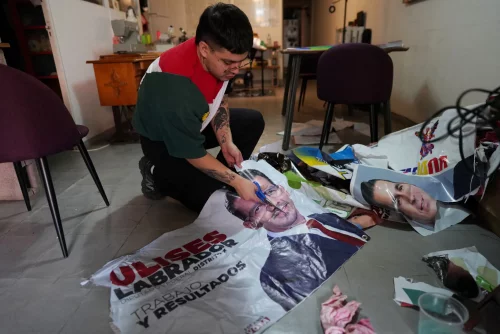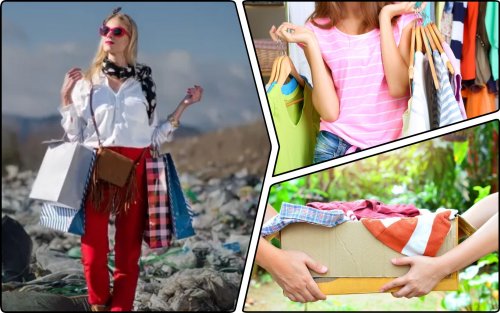Scandinavian brand Gianni has launched the P2P (person-to-person) clothing resale platform to make second-hand shopping seamless.
The addition of simplified resale is another element of Ganni's resilience, according to Green Queen.
Slow fashion and resale are gaining popularity and brands are joining new trends.
About 56 million tons of clothes are bought every year worldwide. It is projected that by 2030 this figure will reach 93 million, and by 2050 - 160 million. However, only 12% of the material is recyclable. The fashion industry is responsible for at least 10% of all greenhouse gas emissions.
Campaigns against fast fashion are leading to more and more people buying things in order to save costs and environmental friendliness. Therefore, brands such as Gianni, Gucci, Valentino and Jean Paul Gaultier take control of their own resale platforms. Prada has also expressed interest in reselling.
Ganni has integrated a resale platform for UK and Scandinavian consumers to its website, where fans of the brand can sell pre-purchases. The idea, according to the brand, is to make it almost impossible for consumers to distinguish between a new product, used or leased.
Ganni also wants to develop an application that will inform customers about the demand for their purchases. So they can upload clothes to the resale platform and be sure that other consumers are looking for it.
The resale model poses a risk in terms of encouraging buyers to clear their old things to buy new ones. However, the brand is optimistic, because consumption styles are changing in general due to the awareness of environmental friendliness. Ganni decides to produce fewer, higher-quality collections that will last longer, and also uses raw materials.
To create a sustainable wardrobe, consumers are advised to buy 75% less new clothes.
Brands that do not want to manage their own resale capacity are looking for partners who will manage the process for them. So Ebay recently announced its Imperfects market, which allows brands to ship products that do not meet quality control standards to sales centers before selling at lower than retail prices.
Buyers can find bargains, including designer handbags with light scratches or sneakers that have been used as exhibits, while brands can recoup production costs and not be involved in the destruction of clothing. For example, the Burberry brand burned $ 35 million in unsold products in 2017 to prevent theft or cheap sales.
It will be recalled that fashionable clothes turn into garbage and pollute the ocean.
As EcoPolitics reported earlier, clothing brands are developing environmental trends in fashion.





